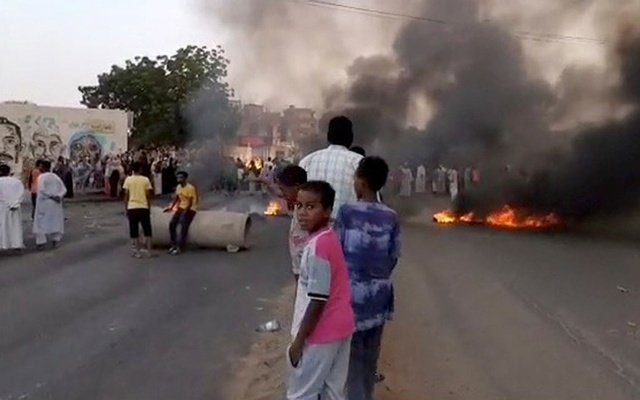
Military leader General Abdel Fattah al-Burhan has declared a state of emergency across the country, dissolving the sovereign council and interim government, following a military coup in Sudan and the arrest of several cabinet members, including the prime minister.
According to Reuters, Prime Minister Abdallah Hamdak was detained and taken to an undisclosed location for refusing to make a statement in support of the coup.
This ministry is still apparently under the control of Hamdak's supporters. The ministry has called for resistance against the coup.
Opponents of the military coup have already taken to the streets in protest. They were shot dead and several others were injured near the military headquarters in the capital, Khartoum.
A committee of doctors said on Facebook that at least 12 people had been injured. However, no further details were given in this regard.
General Abdel Fattah al-Burhan is the head of Sudan's sovereign council. It is a joint council of power-sharing between military and civilian leaders.
According to the BBC, Burhan has blamed political infighting for seizing power in the country. In a televised speech, he said he was forced to take steps to protect the country's security due to quarrels, ambitions and incitement of violence among politicians.
Burhan added that Sudan is still committed to all international agreements and the return to civilian rule. This will be done through the implementation of the election plan in July 2023.
But there are already voices in the streets saying 'I don't want military rule'. "We will not leave the streets until the civilian government returns," said one protester.
Witnesses said the Internet was being disrupted across Khartoum and that army and paramilitary forces were deployed throughout the city. Khartoum airport is also closed and international flights are suspended.
Condemnation of the military coup in Sudan has also begun in the international arena. The UK's special envoy to Sudan and South Sudan has condemned the coup. The United States, the United Nations, the European Union and the Arab League have all expressed concern about the coup.
After the removal of longtime Sudanese President Omar al-Bashir in 2019, the East African country has been governed for the past two years by a shaky power-sharing deal between the military and civilian groups.
Since a failed coup attempt by Bashir's loyalists in September, senior army officials have been demanding reforms to the civilian-controlled coalition Forces of Freedom and Change (FFC) and a cabinet reshuffle. Civilian leaders, on the other hand, viewed the demands as "ambitions to seize power" by military officials.
In a speech on Friday, the country's civilian prime minister, Abdallah Hamdak, outlined a roadmap for overcoming the ongoing political crisis and warned that failure to reach a solution would plunge the country's future into dire uncertainty.
Meanwhile, a section known as close to the military in the FFC alliance called for a protest last Saturday. In response, thousands of protesters gathered in front of the presidential palace in the capital, Khartoum, chanting slogans calling for the removal of the "hungry government" and calling on General Abdel Fattah al-Burhan, head of the armed forces and Sudan's joint military-civilian sovereign council, to take power "by coup."
Supporters of the civilian leadership clashed with protesters in central Khartoum on dozens of buses.